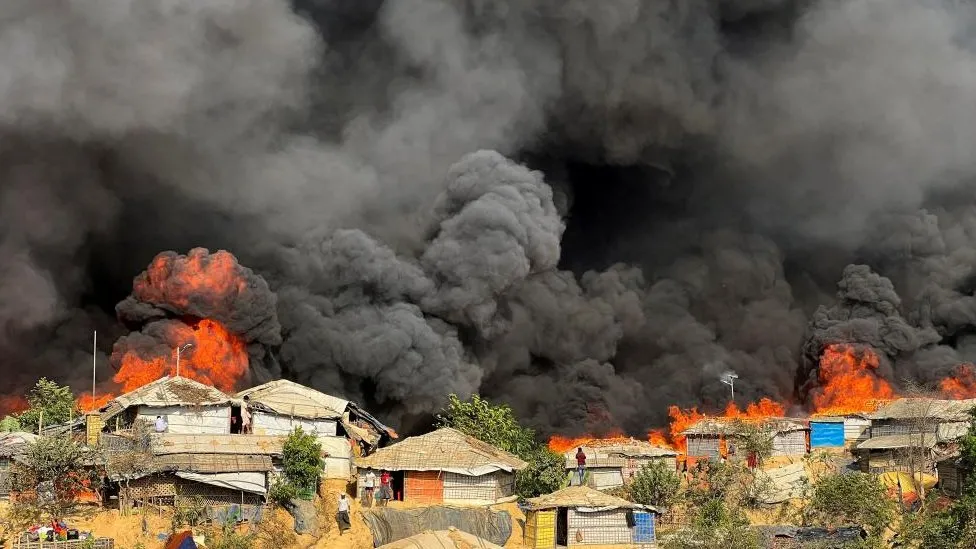The Facts
On Sunday, the seven-member probe committee into the March 5 fire at a Rohingya refugee camp in the Bangladesh district of Cox's Bazar presented its report, describing the blaze as a "planned and purposeful act of sabotage."
Investigators drew on input from scores of eyewitnesses to claim that militant groups were behind the alleged arson in a bid to establish supremacy inside the camps, with the panel finding that fire broke out in several places simultaneously.
The Spin
Narrative A
The suffering of the Rohingya people is indescribable. The accommodations and conditions of the camp have been appalling and now the fire has destroyed countless homes and businesses, leaving people to face homelessness and uncertainty. Life can only improve in the camp if recovery includes homes made of more substantial and sturdy materials like steel and brick, and urgent health and safety needs are addressed.
Narrative B
Following the five-year mark of refugees inhabiting Bangladesh, the government is coercing the refugees to return home. The National League for Democracy-led government and the Myanmar State Administrative Council have failed to secure a safe and humane environment in the Rakhine state. The Rohingya people want nothing more than to leave the barbed-wire, subpar encampments, and return home but there are no safe options to do so.
Narrative C
This tragedy was bound to happen — and that was exactly why Bangladesh was urgently asking for help from all relevant stakeholders to achieve a lasting solution to the Rohingya crisis. Bangladesh is a small, highly-populated country that already faces several other challenges, so the continued presence of more than 1M displaced people is neither reasonable nor sustainable.
